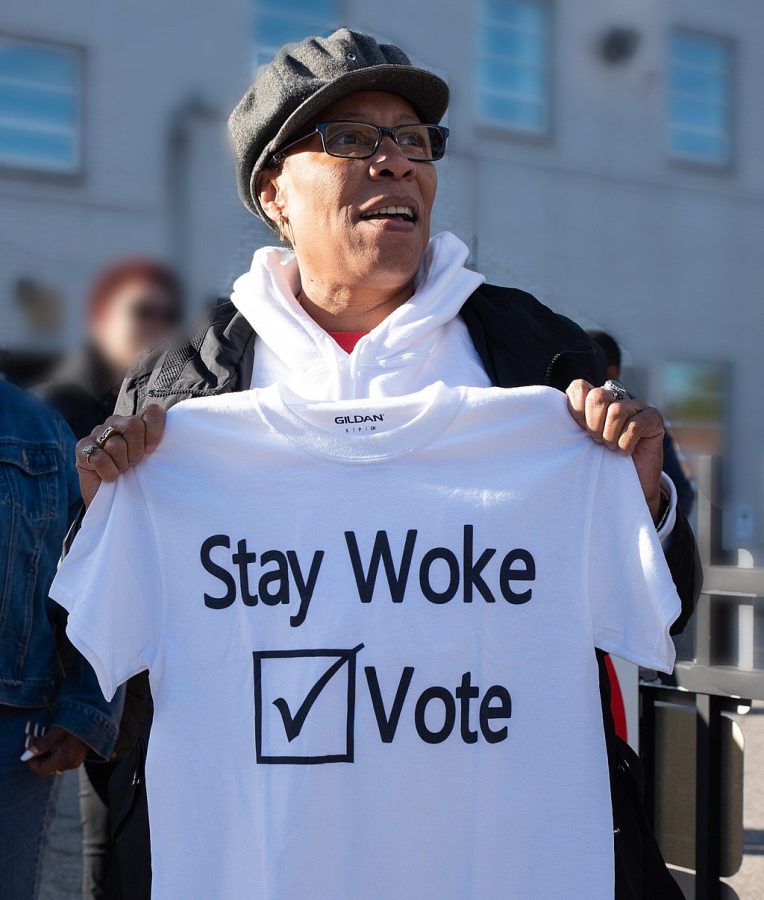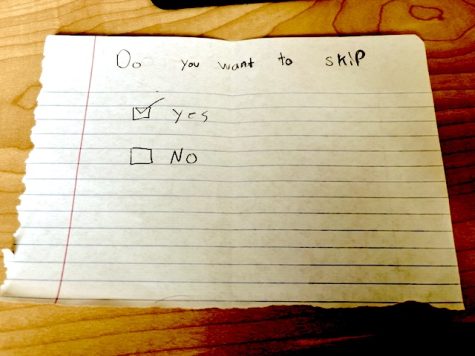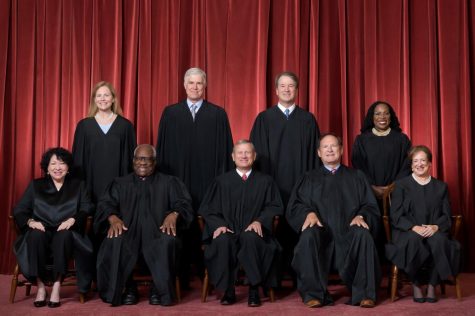Teach African American history. Learn about how book bans are impacting us.
Marcia Fudge, Public domain, via Wikimedia Commons
“Stay woke” was the cautionary advice of black activists after the 2014 police killing of Michael Brown in Ferguson, Missouri. Former Ohio State Representative Marcia Fudge put this photo on her Twitter in November, 2018, admonishing readers: “If we don’t vote, we tell the world that the future of our communities and our country doesn’t concern us. Exercise your right to vote TODAY to make sure your voice is heard.” She is currently the Secretary of Housing and Urban Development.
June 11, 2023
Learning about African American history allows students who are not African American to have a deeper understanding and appreciation for the contributions of African Americans to the world we live in today. All schools should be able to teach students the complete story of African American history.
Circumscribing what teachers can say about race and the country’s history of race relations has taken effect over the last three years. States such as Alabama, Utah, Texas, Tennessee, and more have, according to The74 news, enacted 11 bills that limit or ban discussions touching the topic of race.
Pen America documented more than 1,600 books banned in over 5,000 schools, many relating to race and racism. Banning African American studies and books sends the wrong message to students and compromises their education and development.
“Book bans violate the First Amendment because they deprive children or students of the right to receive information and ideas,” said David L. Hudson, Jr, a professor at Belmont University College of Law.
Florida Governor Ron DeSantis fast-tracked a bill (signed into law that went into effect one year ago) he called the Stop WOKE ACT, restricting how schools can facilitate conversations regarding race and national origin. Stop WOKE stands for “stop the wrongs to our kids and employees.” DeSantis says, “We believe in education, not indoctrination.”
Book bans narrow the types of characters and narratives that we are all exposed to, which can lead to more close-mindedness or reinforce negative stereotypes.
These book bans should not be enforced or supported. Book reading in general helps encourage people to actively participate in social events, and activities involving the world around them. When we ban books, we compromise children’s education and development. Banned books usually focus on topics that are realistic, timeless, and important to learn, so banning these books has the potential to create gaps in knowledge for young learners.










